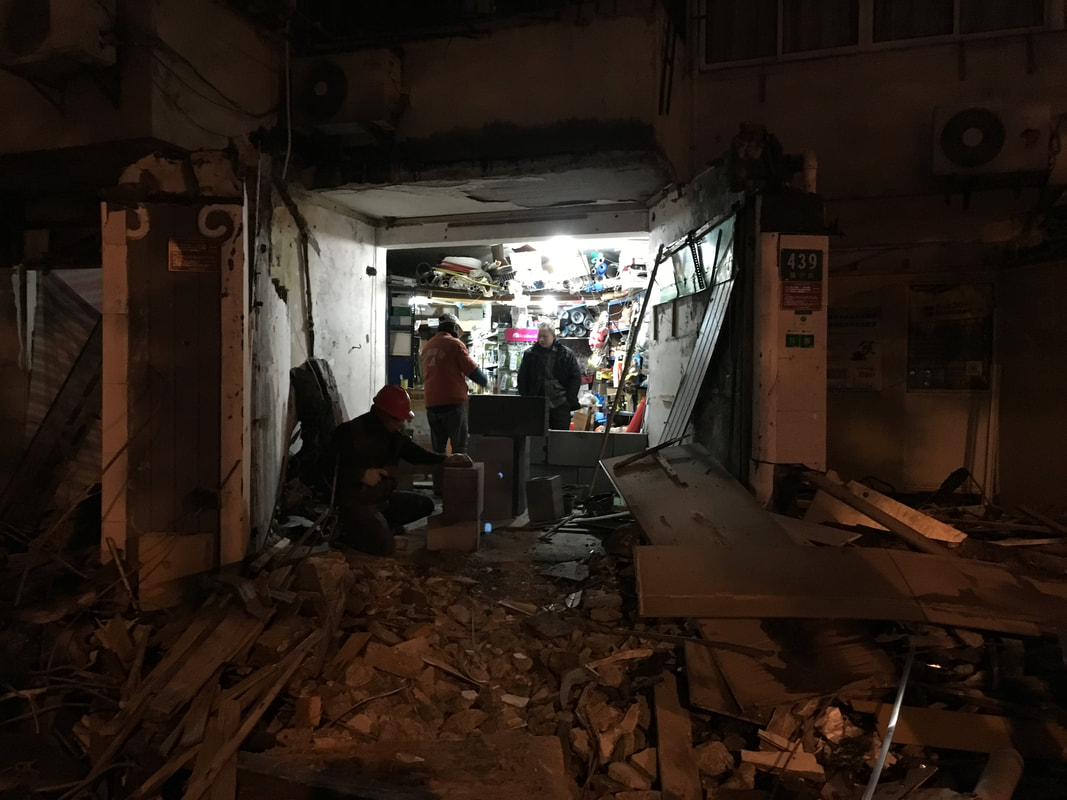In politics, the central and fundamental problem is the problem of power. Who is to exercise power? And by what means, by what authority, with what purpose in view, and under what controls? Yes, under what controls? For, as history has made it abundantly clear, to possess power is ipso facto to be tempted to abuse it. In mere self-preservation we must create and maintain institutions that make it difficult for the powerful to be led into those temptations which, succumbed to, transform them into tyrants at home and imperialists abroad.
A weekend in Shanghai gives ample reason to ponder on Aldous Huxley’s words, which were written in 1962 in The Politics of Ecology. Can power politics and ecological action go well together? I have serious doubts.
A visit to the Shanghai Natural Science Museum, a world class museum and a real treat for children, was overshadowed last weekend by a publicity campaign of China’s public security forces. A few handsome police officers invited children to have their pictures taken with them. A squad of photographers shot every child they could get hold of. For the evening news on the Shanghai TV channel.
The police your friend and helper, who consumes 6% of the national expenditure. More than in any other country.
The same evening, I see food stalls along an entire road in Changning district taken down. By force. The next day half of Changning district’s Dongzhuanbang Road is where things happen: my favorite noodle restaurant, my hair dresser, and many more stores are gone. A military unit of roughly 30 men supervises the construction machines which demolish the buildings while tenants must watch. A friend of mine comments: that’s what communism looks like.
The background to these developments is straightforward economic policy from Beijing. GDP growth relies mainly on the increase of real estate prices and the consumption of high end goods like automobiles. The central government has decreed that illegal constructions must be removed to turbo charge the real estate prices in 1st tier cities. Less commercial space, even with no change in demand, means an increase in prices.
There is tough another reasoning which is related to human resources, not commodities, albeit both being linked with each other. Beijing wants to limit the population of Shanghai to 25 million and thus drives out migrant workers i.e. those who mostly rent cheap illegal commercial and residential space. Shanghai shall become a second Singapore. A cold city in a hot climate?
The implementation of this policy, one must say, is brilliant. I pay my kudos. I really do. Depriving migrant workers out of their businesses or homes just before the Chinese New Year Holiday, when they anyway travel to their originating villages in Henan or Anhui, will make most of them stay there without having anything left to return to in Shanghai. Kicking rural Chinese out of the city does also mean that there will be another increase in prices, which will eventually drive consumption to a new peak level.
Things seem to work according to plan. Instead of cheap migrant workers selling soy milk, Shanghai residents queue in the subway catacombs for a machine prepared orange juice. Bus lines stations are equipped with cooled dispensers of drinks and junk food. Oh, modernization, how have we waited for your belated arrival!
A cab driver analyzed the situation dryly by pointing out: “You will also get your youtiao (deep fried dough, a local breakfast favorite) in future, but not for CNY 1 but CNY 10, because who wants to fry and sell them for CNY 3000 a month, surely not Shanghainese residents. But they are the only ones left to do the job.”
I watch the cranes and excavators for a few minutes and recall how our neighborhood street looked like during early mornings when we went for a local breakfast. Tiny stores, boiling pots, stacks of fried cakes, people queuing in throngs. It’s that liveliness of market streets which always was a major draw to spend my days in Shanghai. Are these days gone?
And I can’t help thinking of the legal system which makes such forceful changes possible. My waning memory of law school produces something called servitude: a subjection of a property to an easement. At least in continental Europe, all these buildings would be subject to servitudes, because they were accepted for many years – both tenants and owners would have a right to indemnification like an owner with deed.
But this, again, is not continental Europe. And I am only a guest who is nothing more than entitled to watch what it means to be in service of the people.

 RSS Feed
RSS Feed